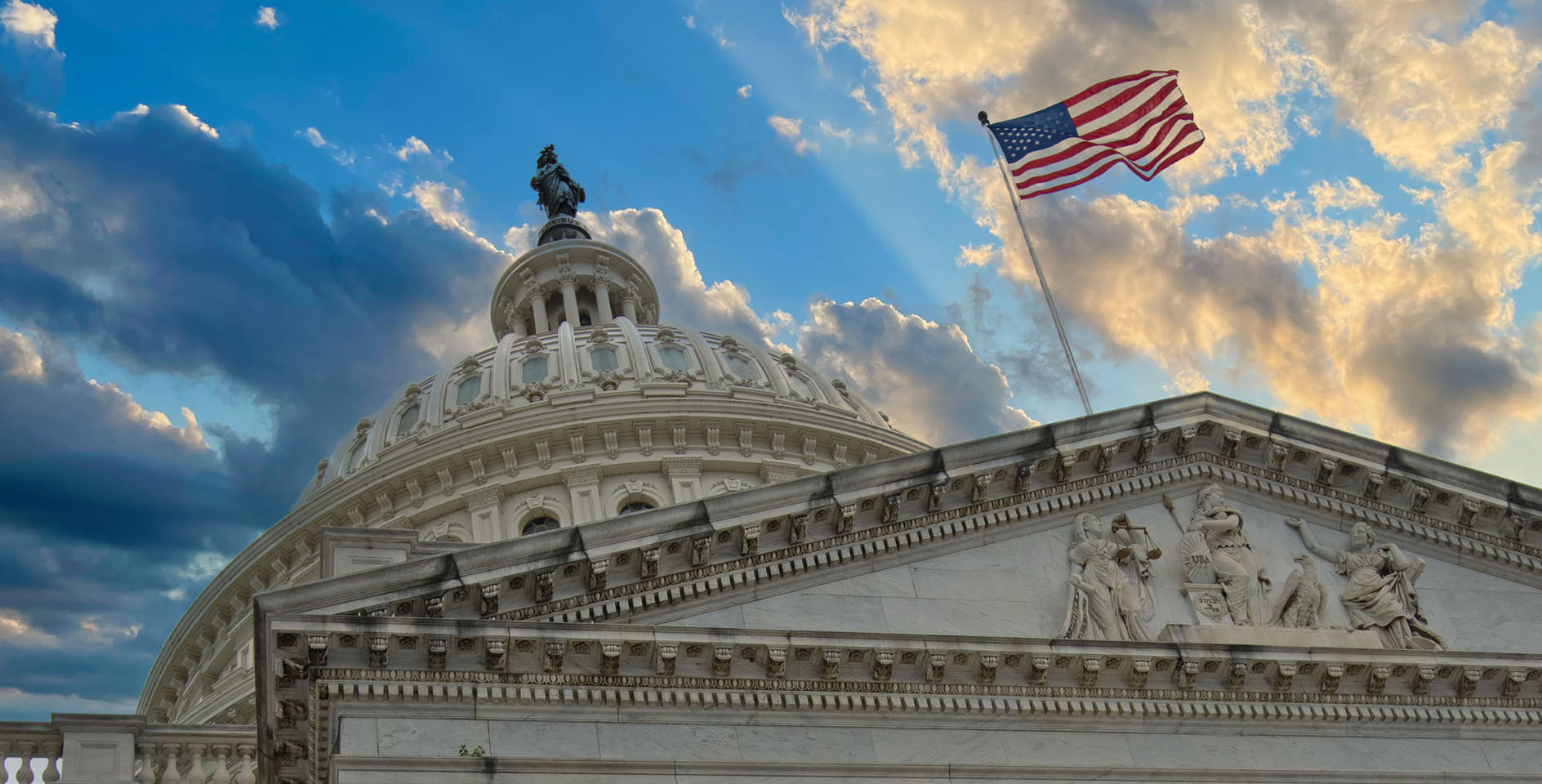As part of an effort to learn more about how American evangelical Christians might contribute to healing political and cultural divides in America, the Fetzer Institute commissioned “Faith and Healthy Democracy,” a report produced by the Ethics & Religious Liberty Commission (ERLC).
While the full report includes an opinion poll, what the researchers heard from their interviews with evangelical thought leaders, and information from academic and historical work on evangelicals and American politics, this article highlights only the findings of the poll, which were included throughout the 72-page report.
Here are the poll results broken out by category:
Civility in the Public Square
• More than a fifth of respondents believed that civility in political conversations is not productive, rising to almost half of those aged 18 to 34.
• About 1 in 4 said that if a political leader they supported insulted an opponent, they would be inclined to believe such insults were justified.
• About 1 in 3 admitted to engaging in “whataboutism,” or responding to a critique by citing examples of wrongdoing on the other side.
• Around 40% said they had spoken up publicly to disapprove of someone on their side for unacceptable words or actions.
• More than half of evangelicals believed that if their political opponents were able to implement their agenda, democracy would be in danger.
• More than half said they trusted news more if delivered by someone with similar views on social and political issues.
• Two-thirds said they tend to believe their political opponents’ motivations are good (this was especially true among Southerners and Hispanics), but a majority did not believe the other side extended the same charity to them.
• More than half report they do not reveal their political beliefs in environments where those beliefs are unpopular.
• More than a third said they simply ignore disagreeable political comments in conversation rather than engaging them
• Women are more likely to self-report being civil than men, and seniors more civil than youth.
• Agreement with the statement, “Jesus Christ’s death on the cross is the only sacrifice that could remove the penalty of my sin,” was associated with greater civility.
• Having a political worldview founded on the belief in the inherent and equal dignity of all was associated with higher levels of civility.
• Having friendships with people of a different income or a different religion was associated with higher levels of civility.
• Concern for religious liberty as a primary issue was associated with higher levels of civility.
• A belief that the stakes of our political disagreements are existential was associated with lower levels of civility.
• Agreement with the statement, “If those I disagree with politically are able to implement their agenda, our democracy will be in danger” was associated with lower levels of civility.
• Obtaining one’s news primarily from social media or other online image- or video-based sources, especially YouTube, was associated with lower levels of civility.
• Evangelicals who said that prominent Christian leaders have influenced their political views scored self-reported lower levels of civility.
• Evangelicals who said they prefer to follow others on social media with whom they agree on social and political issues self-reported lower levels of civility.
• Evangelicals who prefer to get their news from someone with whom they already agree self-reported lower levels of civility.
• Evangelicals who said they are single-issue self-reported lower levels of civility.
Consumption of News Media and Social Media
• Three-quarters of respondents said they regularly get their news from television—half from Fox News alone.
• Almost 40% regularly get their news from websites (again, with Fox News’ website the leader by a wide margin) and from social media websites, such as Facebook and Twitter.
• Just over 1 in 4 regularly get their news from a print newspaper or magazine.
• Half of all respondents check Facebook several times per day, and one-quarter visit YouTube with the same frequency.
• More than half said television and news websites made public debate less respectful.
• Nearly two-thirds said social media made public debate less respectful.
• Almost two-thirds felt print news media made public debate more respectful.
• Two-thirds claimed never to engage with others about social or political issues over social media.
Engagement in Non-Religious Civic Activity
• Less than 15% said they participated monthly in any type of organization (not counting church), including sports clubs, hobby clubs, affinity groups, neighborhood associations, non-profit organizations, veterans’ groups, and more.
• Over 70% said they did not participate in any nonreligious civic activity.
Political Identification, Engagement, and Issue Prioritization
• Half of our respondents self-identified as Republicans, with weekly church attendance being correlated with Republican identification
• Older and whiter evangelicals, especially in the South and West, were more likely to identify as Republicans.
• Almost a third of those espousing evangelical beliefs identified as Democrats, but only a quarter of those who self-identified with the evangelical label did so.
• Northeastern and African American evangelicals were far more likely to identify as Democrats.
• Three-quarters of respondents claim to have voted in the 2016 primary, 2016 general election, and 2018 mid-term election. Older and more educated evangelicals voted in even higher numbers.
• For around 40% of respondents, voting was their only political activity.
• Less than 15% report having donated money to a campaign, attended an event with a candidate, or campaigned for a candidate.
• About 1 in 3 report doing research before voting, and almost 40% watch televised debates.
• Between 75 and 85% said the Bible informed their political views; that they look for biblical principles to apply in political issues; and that their faith influences how they engage others politically.
• More than half said that the teachings of their local church or a prominent Christian leader influenced their political views.
• About 80% said they cared about several issues compared to less than 10% who identified as single-issue voters.
• More than half agreed they would only support a candidate who was pro-life.
• More than half agreed they would only support candidates who would fight racial injustice.
• Between 85 and 90% said they would only support candidates who demonstrate personal integrity.
• Between 66 and 70% said that they would only vote for a candidate they believe is a Christian.
• The top public policy issues they were concerned about were healthcare, the economy, and national security, followed by immigration.
• One-third of evangelicals listed religious liberty as a top concern, falling to 28% of the youngest cohort and 13% of black Protestants.
• Whites, older respondents, those with graduate degrees, and those who attend church at least once per week were more likely to list religious liberty as a top concern.
• Two-thirds of evangelicals said it is important to advocate for religious liberty for Muslims and other non-Christians.
• Less than 30% listed abortion as their top concern.
• Between a fifth and a quarter said providing for the needy or working for racial justice was a top concern.
• White evangelicals were far more likely to list abortion, religious liberty, national security, or immigration as a top concern.
• African Americans were more likely to list helping the needy, healthcare, and racial injustice. (In comparison, 11% of white evangelicals say racial injustice is a top concern.)
• Evangelicals who attend church most frequently were least likely to say that helping the needy is a top concern.
• About 90% of respondents agreed that their political views are informed by the idea that every human being has equal and inherent dignity.
About the survey
The opinion poll consisted of an online survey of evangelicals conducted November 14 –23, 2018. Respondents were screened to include both those with evangelical beliefs, and Protestant or nondenominational Christians who self-identify as evangelical (there were small divergences because some people who profess evangelical beliefs nonetheless do not call themselves evangelicals).
Evangelical Beliefs were defined using the NAE LifeWay Research Evangelical Beliefs Research Definition based on respondent beliefs. Respondents were asked their level of agreement with four separate statements using a four-point, forced choice scale (strongly agree, somewhat agree, somewhat disagree, strongly disagree). Those who strongly agree with all four statements were categorized as having Evangelical Beliefs:
• The Bible is the highest authority for what I believe.
• It is very important for me personally to encourage non-Christians to trust Jesus Christ as their Savior.
• Jesus Christ’s death on the cross is the only sacrifice that could remove the penalty of my sin.
• Only those who trust in Jesus Christ alone as their Savior receive God’s free gift of eternal salvation.









